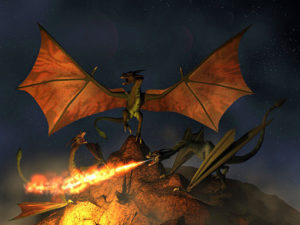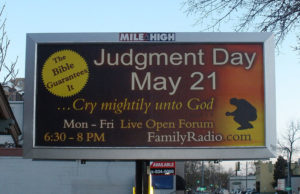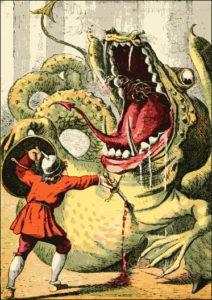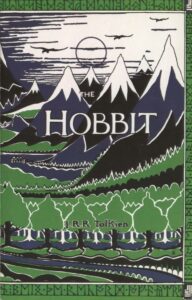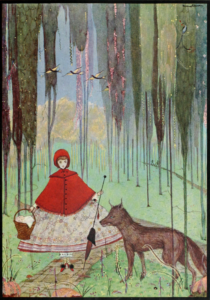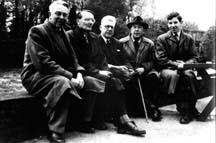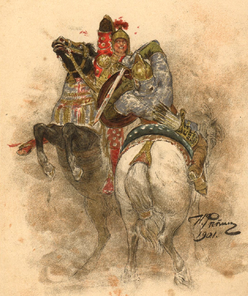Fantastic Tropes and Where To Find Them
Kessie Carroll, Sep 9, 2012
Every story has tropes. Christian speculative stories are no exception. Hereâs a tongue-in-cheek collection.
Onward, Words!
Yvonne Anderson, Sep 7, 2012
God places value on words. He is a Writer, through clear instruction, stories, and more. Thus, our words and stories should remind us of His.
Reading Is Worship 3: Cause-Idolatry
E. Stephen Burnett, Sep 6, 2012
At writersâ conferences and on blogs, many of us may confront this idol: seeing ourselves as an oppressed minority and waging war for The Cause of Christian speculative stories. How might we fight this âChristianity And âŚâ idolatry?
Entering The âAsylumâ
E. Stephen Burnett, Sep 5, 2012
âDoctor Whoâ series 7 began with an explosive opener last Saturday, raising questions about great battles versus personal ones, and particularly what true kind of love the greatest stories celebrate.
While I Was Away
Fred Warren, Sep 4, 2012
I’m back home after a week and a half work trip in Seoul, Korea, which was a little more eventful than I would have preferred…
Monsters And Their Meaning
Rebecca LuElla Miller, Sep 3, 2012
Some writers take monsters and re-envision them. Thus, vampires become love interests instead of deadly beings from which to flee (the Twilight series by Stephenie Meyers). Dragons are good instead of evil, protected from dragon hunters by an act of God (Dragons In Our Midst series by Bryan Davis). Elves are noble and wise rather than mischievous or selfish (Tolkien’s The Lord Of The Rings).
Teaching Story Transitions 4: Early Tools For Truth
Jared Moore, Sep 2, 2012
How do parents know when and how to teach children ways to discern? One possible answer is found in the trivium of the classical education system.
You’re As Relevant As A Wimpy Mustache!
Christopher Miller, Aug 31, 2012
Hereâs the funny thing about pursuing relevance–if youâre trying to be it, you probably arenât. Coolness canât be faked any more than singing with Auto-Tune makes you a vocalist (sorry T-Pain), or growing a handlebar mustache makes you a man (though I envy any man who can pull it off).
Reading Is Worship 2: Experience-Worship
E. Stephen Burnett, Aug 30, 2012
Itâs easy to break into othersâ idol factories. But for most readers, including myself, the worst potential idol in enjoying speculative stories may be experience. How is this self-defeating? What is the Biblical cure?
When The Rubber Hits The Road
John Otte, Aug 29, 2012
Once again, due to the hectic-ness of life in the “real world,” I was unable to put a video together. Sorry. This is the last post I’ll be doing on amillennial eschatological theology. If you haven’t figured it out by […]
Stories Of Sacrifice
Rebecca LuElla Miller, Aug 27, 2012
I think there’s something to the idea that self-sacrifice is appealing. C. S. Lewis was particularly good at weaving self-sacrifice into his stories. It, of course, is crucial in the (traditional) opening book of Narnia–The Lion, the Witch, and the Wardrobe.
Writers Slay Dragons (and You Should Too)
Christopher Miller, Aug 24, 2012
The truth is, the dragon is real and living among us. But what is this dragon really up to? Whatâs his goal? Is he merely trying to slow us down in our life journey? Is he simply keeping us from taking chances, fulfilling our dreams or doing great things for God in this world?
Reading Is Worship 1: Foreword
E. Stephen Burnett, Aug 23, 2012
Whatever story weâre reading, seeing, or hearing, weâre not simply critiquing or being entertained. Weâre worshiping. So what is Biblical worship? When you read epic stories, what or who do you worship, by intention or accident?
Lewis and Literature In The Library
E. Stephen Burnett, Aug 22, 2012
Work continues to collect all published, Christian speculative stories in one place â the Speculative Faith Library. This effort also helps reveal a few things about the Christian-spec story field and classic authors that you may not know.
The Fairy Tale Phenomenon
Rebecca LuElla Miller, Aug 20, 2012
Is our perception of fairy tales changing? As Dean said in his post Friday, some guys feel as if their âman cardâ is at risk if they admit to reading fairy tales. Tolkien has wars and a civilization-saving quest, outsmarting a dragon and evading goblins, but fairy tales are about saving a damsel in distress. The damsels, of course, very much want those stories told. But do guys want to read them?
Why Arenât Adults More Inclined To Read Fantasy?
Dean Hardy, Aug 17, 2012
George MacDonald, a contemporary and friend of Lewis Carroll and Mark Twain, wrote fairy tales not only for children, but also for adults, and surprisingly, from our 21st century context, his work sold in the thousands of copies throughout Europe and also here in the U.S.
Shallow Reasons To Support âNarniaâ 2
E. Stephen Burnett, Aug 16, 2012
Why do some force shallow, over-âspiritualâ allegories on the âNarniaâ stories â to the extent of claiming Aslanâs tent equals the Tabernacle, the Professorâs house equals the church, or the wardrobe equals the Bible?
Temples, Old and New
John Otte, Aug 15, 2012
No video this week, but I am talking about butterflies and time travel. Yes, they are related.
What’s A Work Of Fiction To Accomplish–Revisited
Rebecca LuElla Miller, Aug 13, 2012
The question is this. Does a piece of fiction impact a reader more by ambiguity and the ensuing discussion, or by clarity? Iâve never heard a discussion about whether or not Aslan was a redemptive character. Did Lewis create a less powerful character as a result of making him clearly good, clearly redemptive?
Beyond Inklings Imitations 2: Stories We May Have Missed
A. T. Ross, Aug 13, 2012
Most of us have read C. S. Lewis, J. R. R. Tolkien, and newer Christian speculative novels. But what authors and classics might we have missed?
Reviewing Speculative Faith Reviews
E. Stephen Burnett, Aug 10, 2012
Writing more blog entries lamenting the lack of good Christian sci-fi and fantasy novels doesnât correct this problem. Instead, read Christian SF novels and write reviews. Not just for The Cause, but to help others worship God.
Shallow Reasons To Support âNarniaâ 1
E. Stephen Burnett, Aug 9, 2012
Flawed, over-âspiritualâ defenses of the âNarniaâ series are not only annoying, but ignore the storiesâs central beauties and childlike wonder. Even worse, such approaches ultimately make readers worship God less.
âWhy Did(nât) You Like That Story?â
E. Stephen Burnett, Aug 8, 2012
What films, series, and novels do you enjoy that others despise, and which stories do you dislike that others near-unanimously praise? What possible factors lead to such differences?
Beyond Inklings Imitations 1: Exploring The Source
A. T. Ross, Aug 7, 2012
Readers have so âcultifiedâ the Inklings that authors and publishers assume the only novels we want to read are imitations of Lewis or Tolkien.
The Appeal Of Fantasy For Young Adults
Rebecca LuElla Miller, Aug 6, 2012
Of all the unexpected things in contemporary literature, this is among the oddest: that kids have an inordinate appetite for very long, very tricky, very strange books about places that donât exist, fights that never happened, all set against the sort of medieval background that Mark Twain thought he had discredited with âA Connecticut Yankee in King Arthurâs Court.â (excerpt from “The Dragon’s Egg”)
Familiarity Versus Originality
Greg Mitchell, Aug 3, 2012
Old stories, as âtypicalâ as they are, speak to a deeper longing in all of us. We want to know that good wins. That there is hope. That love is just around the corner. Life doesnât always demonstrate that to us, so we find ourselves at Storyâs door, wanting to escape to a place where magic is still alive. To fly in the face of that child-like expectation is almost a betrayal of Story.
Speculative Faith Reading Group 9: From Defeat, Final Victory
E. Stephen Burnett, Aug 2, 2012
Even among the greatest stories, the finale of LWW is unique. Here are echoes of Resurrection, eternal joy, and the truth that Christâs people will reign physically over the New Heavens and New Earth.


























